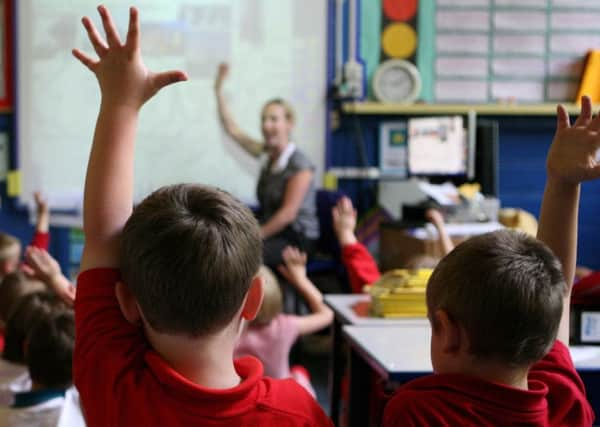'˜Huge payoff' for poorer children who receive early years education


There is a huge “pay off” for youngsters from disadvantaged homes who get access to early years education, according to Andreas Schleicher.
A landmark new study by the Organisation for Economic Co-operation and Development (OECD) has indicated issues from social immobility to obesity could be tackled through high-quality pre-school education.
Advertisement
Hide AdAdvertisement
Hide AdThe findings come just months before a £50m scheme is introduced to double free childcare for three and four-year-olds in England, aimed at working families.
Mr Schleicher, head of the OECD’s education policy arm, said that from an economic perspective, he understands the arguments for supporting families by offering care so parents can work.
But he added that from a child development point of view, employment is “not as important as disadvantage”.
Speaking ahead of the report’s launch, he said it is “particularly” children from disadvantaged backgrounds who should be given as much quality early childhood care and education as possible.
Advertisement
Hide AdAdvertisement
Hide Ad“Early childhood education pays off hugely for children from disadvantaged families”, Mr Schleicher said.
“If you think about your children, that is the future of your country. They are only a small proportion of your population but they are 100% of your future.”
The research showed many other governments offer early childhood education and care “unconditionally”.
Mr Schleicher said: “From the perspective of labour market participation I can see the point to make it possible for those who want to work to have their children taken care of.
Advertisement
Hide AdAdvertisement
Hide Ad“But from an educational and development perspective you want to ensure that particularly those who do not have the wealthy background in the family will get the support.”
He also said: “Disadvantage should be more important for ensuring high-quality education and care than employment. If your child, whether you work or not, is (in childcare), it makes your work easier. But if you think about the child, it should be more important to give the best services for the children who need the most.”
Under the current system, parents are entitled to 15 hours of free childcare a week, although from September they will be offered 30 hours if they are a couple both in work or a single parent in work.
The Department for Education (DfE) spokeswoman said: “Every child should get a world-class education at every stage of their life, and the OECD’s reports are further evidence that access to high-quality early education can improve a child’s outcomes later in life. We are investing more than ever before into childcare.”
Advertisement
Hide AdAdvertisement
Hide AdThe research comes as the row over education funding continues with almost two million families being sent letters warning that “cash-starved” schools must be given more money.
The letters, urging parents to continue campaigning for a growing funding gap to be plugged, are being sent by headteachers at around 4,000 state schools in England, covering 17 councils. The letter highlights a recent Institute for Fiscal Studies paper which said once rising student numbers and inflation are taken into account, even the additional £4bn proposed would still lead to a real terms cut.